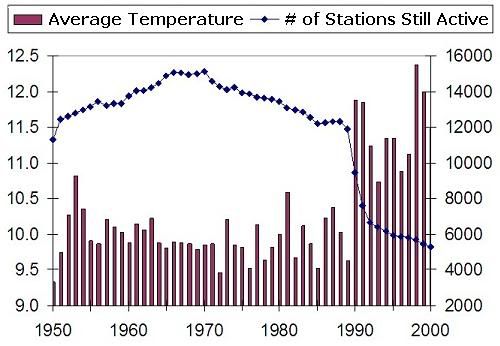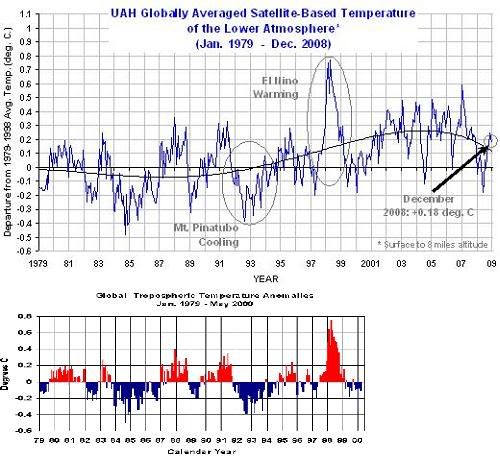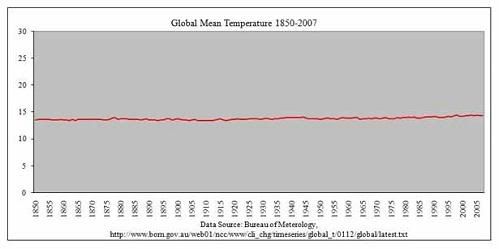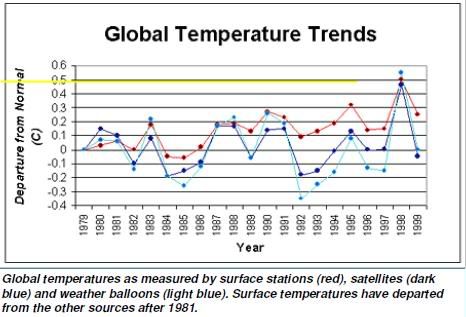Gilthan wrote:I congratulate you on cunningly ignoring the NASA chart, etc,in my post,
I was pointing out it was a shitty source, you whiny bitch. Why do I have make a comment on the rest? Does a "good source" make up for the fact you used a shitty source? Even if someone posted something I agreed with but had
one dubious source (of many), I would still point it out.
Gilthan wrote: so that you could try to redirect the discussion to become whether someone's choice of 70 unspecified stations matches the unsourced temperature rise data of someone else's choice of 1228 stations.
Redirect? That's entire point of that fucking link you posted. It's claim is that the data from these surface stations is contaminated. I can only assume that you using it to back up your vague claim about the "urban heat island" effect making taking readings difficult.
Unspecified? The link you posted specifies those very stations, unless he took them down in embarrassment after his pwnage by NOAA.
Unsourced? Can't you fucking read? It's from NOAA (The National Oceanic and Atmospheric Administration). Here is a direct
link.
Gilthan wrote:Apparently passing mention of a link to a site you don't like was similar to waving a red flag in front of a bull.
No, providing a source that has been repeatedly debunked and using it as some form of "evidence" to back up your vague points gives me the shits. I guess every time I mock at anybody who uses
Answers in Genesis as a source in the evolution debate I wasn't pointing out the source they were using is shitty.The
real reason must have been I just didn't
like the source.
Gilthan wrote: "we can have a proper result, but only by including a load of garbage" (from longer hacked email info, a couple pages into this thread).
First, you berate me for only taking issue with
part of your post and then imply that my source was "unsourced" because (it seems) I didn't post a direct link to the literature behind it and you have the balls to post
part of somebodies email (which could very well be taken out of context) and then claim it is from a "hacked email" (Wonderful source reference). Seriously, is it easy to be such a shameless hypocrite?
As for your cherry picked quote, is he referring to the surface station data? What exactly data is he exactly talking about?
Even if he did something wrong, how exactly does his actions automatically negate the thousands of independent peer review papers on climate change that indicate that it is occurring? Since, you didn't provide any information on where this came from or who even wrote it. I had to spend a bit of time finding it. The guy they are referencing is Ian "Harry" Harris from the University of East Anglia.
Most of the quotes being trumpeted have been taken out of context (including Ian Harris's quote). RealClimate has a
list of them, along with this
site.
Ian Harris was venting his frustration because he was in the 4 year long process of creating a database from smaller individual databases with differing and sometimes inconstant formats. He was running into all sorts of trouble. The document which this
one fucking line comes from is 355 pages in word.
This is what was immediately before that quote. The important bit is in bold font.
Ian Harris wrote:2. The gridder output is lower than 3.0, and much lower than the stations!
I asked Tim and Phil about 1., they couldn't give a definitive opinion. As for 2., their
guesses were correct, I needed to mod the distance weighting. As usual, see gridder.sandpit
for the full info.
So to CLOUD. For over a year, rumours have been circulating that money had been found
to pay somebody for a month to recreate Mark New's coefficients. But it never quite
gelled. Now, at last, someone's producing them! Unfortunately.. it's me.
The idea is to derive the coefficients (for the regressing of cloud against DTR) using
the published 2.10 data. We'll use 5-degree blocks and years 1951-2002, then produce
coefficients for each 5-degree latitude band and month. Finally, we'll interpolate to
get half-degree coefficients. Apparently.
Lots of 'issues'. We need to exclude 'background' stations - those that were relaxed to
the climatology. This is hard to detect because the climatology consists of valid values,
so testing for equivalence isn't enough. It might have to be the station files *shudder*.
Using station files was OK, actually. A bigger problem was the inclusion of strings of
consecutive, identical values (for cloud and/or dtr). Not sure what the source is, as they
are not == to the climatology (ie the anoms are not 0). Discussed with Phil - decided to
try excluding any cell with a string like that of >10 values. Cloud only for now. The result
of that was, unfortunately, the loss of several output values, ie:
This is followed by a long matrix of data (He mentions using MatLab, so I'm assuming its MatLab) and some commentary about how trying to filter the duplicates out made the data not seem "sensible". This is perfectly reasonable. The wrong filtering can screw up data, anybody who has done any scientific work or has analysed data from field tests knows this. Especially data that is not consistent in its format.
After all that comes this comment:
Ian Harris wrote:So, we can have a proper result, but only by including a load of garbage!
So basically, the data he is trying to merge has a lot of duplicate strings, identical values etc. When he tried to filter the crap out, the data went out of whack. So the only way to get a "result" without deterioration of the data is to include a lot of
unnecessary "garbage" data such as duplicates.
Nothing sinister, you stupid fuckwit.
Nice going taking a quote completely out of context.
There was no doctoring of data as you imply, there was difficulty in creating a new database out of other databases with inconsistent data formatting. He had to include unnecessary
duplicate data.
He even later states (important bit in bold font):
OK, got cloud working, have to generate it now.. but distracted by starting on the
mythical 'Update' program. As usual, it's much more complicated than it seems. So,
let's work out the order of events.
So presumably, he managed to fix the problem.









